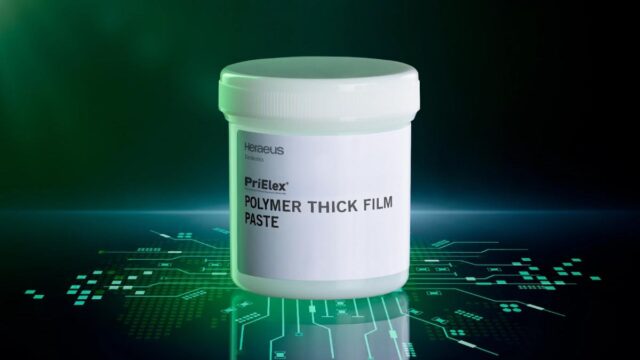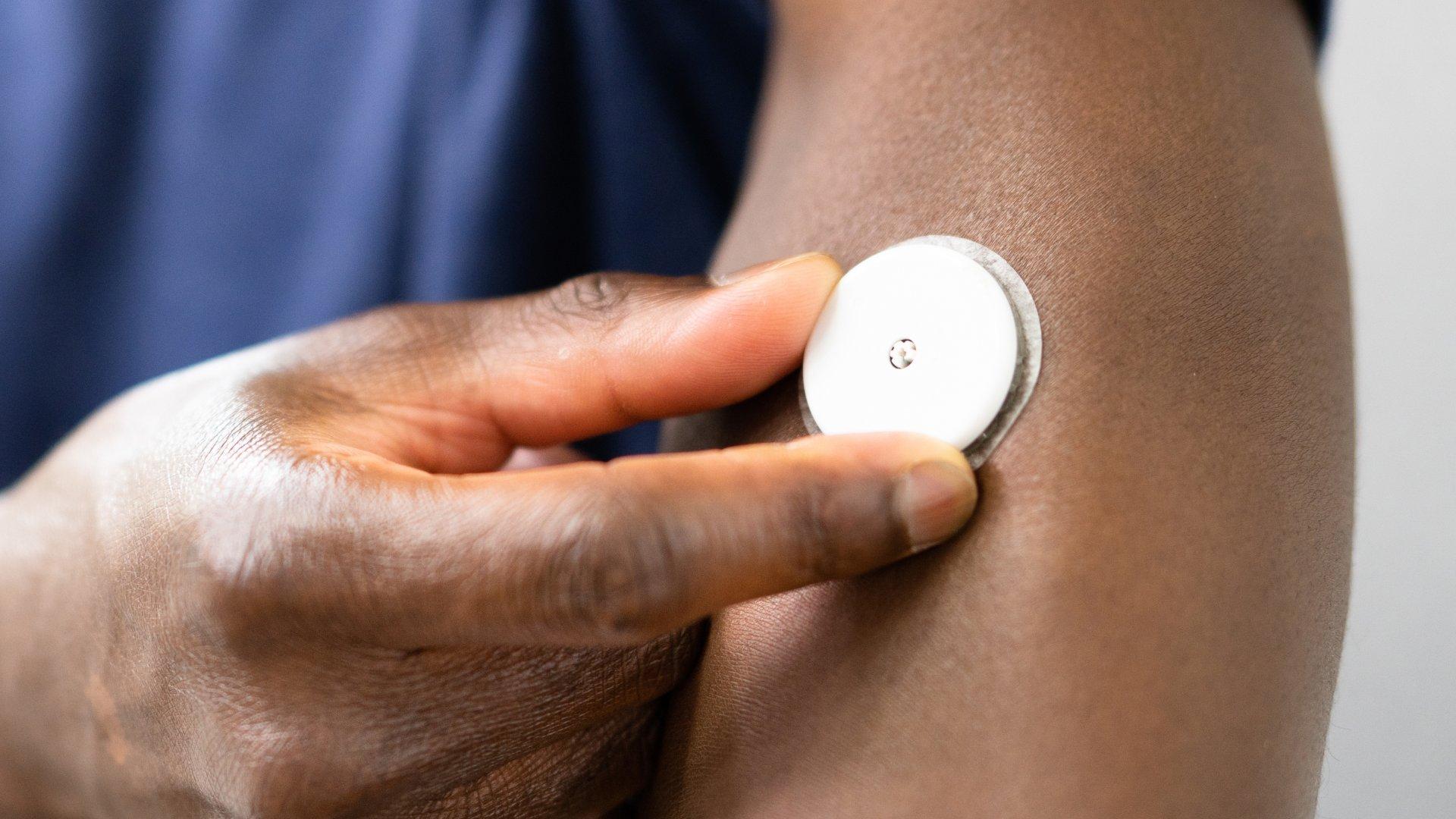Artificial intelligence is accelerating breakthroughs in healthcare, enabling earlier disease detection, personalised treatment, and remote monitoring. With AI’s ability to process vast datasets, medical professionals can now deliver faster, more accurate care – even from the comfort of a patient’s home. At the heart of this transformation are medical sensors, such as continuous glucose monitors (CGMs), which provide real-time insights into patient health.
Polymer Thick Film (PTF) technology is a key enabler of this innovation. Known for its cost-efficiency, reliability, and manufacturing flexibility, PTF materials support the development of compact, high-performance sensors. Heraeus Electronics’ PriElex product line, including silver/silver chloride (Ag/AgCl) inks, leads the market in biocompatible electrode materials for internal medical applications.
Smaller, smarter, greener
As medical devices become smaller and more integrated, manufacturers face the challenge of maintaining performance while reducing size and cost. PTF materials offer a solution by enabling miniaturised circuits, low-temperature processing, and greener manufacturing. These benefits are critical for scaling wearable medical technologies that improve patient outcomes and accessibility.

Sensor evolution and industry standards
Medical sensors have evolved from bulky diagnostic tools to sleek, wearable devices. CGMs, for instance, continuously track glucose levels, helping patients manage diabetes more effectively. These sensors rely on electrochemical detection, often using Ag/AgCl electrodes for signal transmission. Industry standards like ISO 10993 (biocompatibility) and IEC 60601 (medical electrical safety) guide the development of safe, effective sensor technologies.
Introducing AG-810: A cost-effective silver ink
To meet the growing demand for compact and affordable sensors, Heraeus developed AG-810, a silver-based PTF ink optimised for simple circuit designs. AG-810 features ultra-low silver loading while maintaining high conductivity, helping manufacturers reduce material costs without compromising performance. It is compatible with flexible substrates like PET and polyimide and supports screen printing for scalable production.
AG-810 is part of the PriElex portfolio and is designed for global usability, meeting international manufacturing and environmental standards. Its low-temperature curing (100–130 °C) and excellent printability make it ideal for medical sensor applications.
What’s next: Technical insights and real-world impact
In the next section, we’ll explore how AG-810 works, its integration with other materials, and its performance in real-world medical sensor applications.
AG-810 addresses a critical challenge in sensor manufacturing: the rising cost of silver. By optimising particle size distribution and formulation chemistry, AG-810 achieves high conductivity with minimal silver content. It can be blended with carbon-based materials to further reduce costs and is compatible with other Heraeus products like dielectrics and overcoats, enabling complete sensor stack designs.
Its architecture supports:
• Fine-line resolution
• Low-temperature curing
• Stable electrical performance
• Excellent adhesion and flexibility
These features make AG-810 ideal for wearable medical devices, where durability and precision are essential.

Real-world applications and results
Heraeus’ PriElex materials have been successfully used in biosensors, ECG electrodes, and CGMs. In comparative testing, AG-810 demonstrated a 20–30% reduction in silver usage while maintaining >95% conductivity compared to traditional inks. This results in significant cost savings, material efficiency, and sustainability for manufacturers.
Challenges and limitations
While AG-810 reduces silver content, maintaining conductivity remains a challenge. Current products still rely on silver for optimal performance. Heraeus continues to refine particle engineering and hybrid formulations to push the boundaries of low-silver inks.
The medical industry demands high-reliability, scalable, and cost-effective materials. Heraeus is committed to maintaining the performance standards customers expect while driving down costs. As wearable and remote healthcare technologies expand, the need for trusted partners and innovative materials will grow.
Conclusion: Partner in innovation
Polymer Thick Film technology is reshaping the future of medical sensors. With solutions like AG-810, manufacturers can deliver smarter, more affordable healthcare devices. Explore Heraeus Electronics’ PriElex portfolio and join the movement toward better, more accessible medical technology.
Heraeus Electronics


